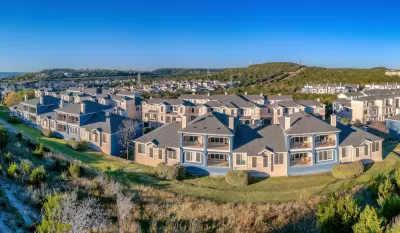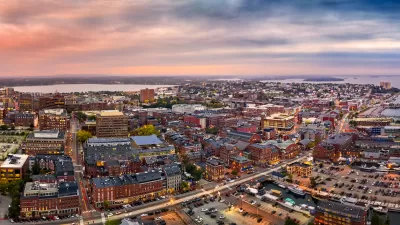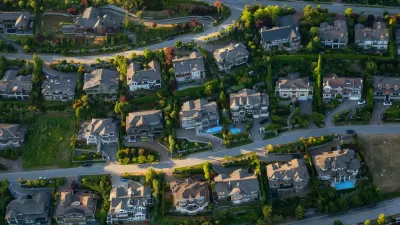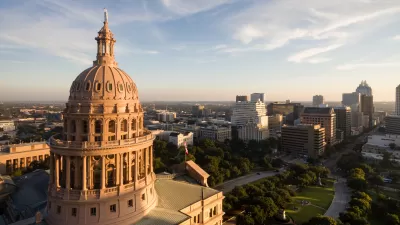Combined with the recent decision to eliminate parking minimums, the move to end single-family zoning could help make housing more affordable.

Months after ending minimum parking requirements, the city of Austin voted to eliminate single-family zoning and allow up to three homes on each residential lot, reports Austin Sanders in The Austin Chronicle. “Property owners will also be able to install tiny homes on their property and owners of older homes will be able to utilize new bonuses designed to incentivize the preservation of existing homes that meet certain criteria.”
The new rule, called Home Options for Middle-Income Empowerment (HOME), doesn’t apply in the city’s Neighborhood Conservation Combining Districts (NCCD). Recognizing the new housing arrangements prompted in part by the high cost of housing, it also eliminates rules about unrelated housemates, legalizing increasingly popular co-living arrangements. Sanders notes that “Property owners will also be limited by private deed restrictions and homeowners associations that limit the number of homes built on a single lot.”
FULL STORY: After Long Day of Testimony, Council Votes to End Single-Family Zoning

Study: Maui’s Plan to Convert Vacation Rentals to Long-Term Housing Could Cause Nearly $1 Billion Economic Loss
The plan would reduce visitor accommodation by 25,% resulting in 1,900 jobs lost.

North Texas Transit Leaders Tout Benefits of TOD for Growing Region
At a summit focused on transit-oriented development, policymakers discussed how North Texas’ expanded light rail system can serve as a tool for economic growth.

Using Old Oil and Gas Wells for Green Energy Storage
Penn State researchers have found that repurposing abandoned oil and gas wells for geothermal-assisted compressed-air energy storage can boost efficiency, reduce environmental risks, and support clean energy and job transitions.

Private Donations Propel Early Restoration of Palisades Playground
Los Angeles has secured over $1.3 million in private funding to restore the Pacific Palisades playground months ahead of schedule, creating a modern, accessible space that supports community healing after recent wildfires.

From Blight to Benefit: Early Results From California’s Equitable Cleanup Program
The Equitable Community Revitalization Grant (ECRG) program is reshaping brownfield redevelopment by prioritizing projects in low-income and environmental justice communities, emphasizing equity, transparency, and community benefits.

Planting Relief: Tackling Las Vegas Heat One Tree at a Time
Nevada Plants, a Las Vegas-based nonprofit, is combating the city’s extreme urban heat by giving away trees to residents in underserved neighborhoods, promoting shade, sustainability, and community health.
Urban Design for Planners 1: Software Tools
This six-course series explores essential urban design concepts using open source software and equips planners with the tools they need to participate fully in the urban design process.
Planning for Universal Design
Learn the tools for implementing Universal Design in planning regulations.
Ascent Environmental
Borough of Carlisle
Institute for Housing and Urban Development Studies (IHS)
City of Grandview
Harvard GSD Executive Education
Toledo-Lucas County Plan Commissions
Salt Lake City
NYU Wagner Graduate School of Public Service





























